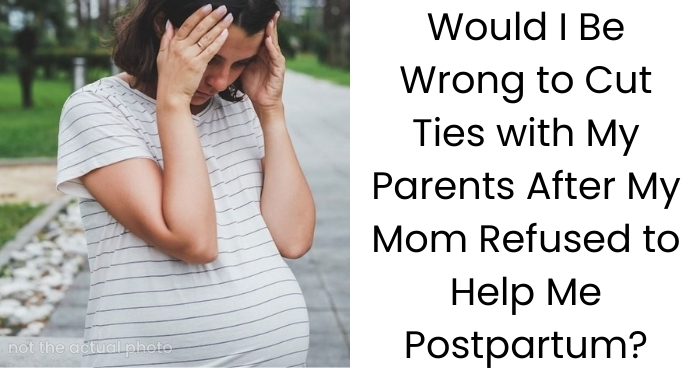Pregnant woman plans to go no contact with parents, ‘my mom refuses to take care of me after I give birth.’ AITA?
You have never understood why your own mother would care for your siblings after they were born but not you. You recalled being reminded about this history of privilege; and that this was a chance to feel like a second class citizen once again; that this event reopened wounds about a lifetime of being invisible and underappreciated by family. You explained how you felt like an afterthought: forgotten birthdays, missed milestones, and continuing neglect compared to your brothers and sisters. You want to make up just for a while until you can leave without parting on awful terms and then end the relationship for good after having moved out of state.
Your conflict revolves around a pattern of emotional neglect. It is an extreme thing to do, I will say that, but after years of disappointment and no effort reciprocated — I think I know better where I stand with my parents. Now, you wonder if separating from them makes you a horrible person, when it really seems that you have put your mental health as well as the new little family created with your husband first.
Read for more info Reddit
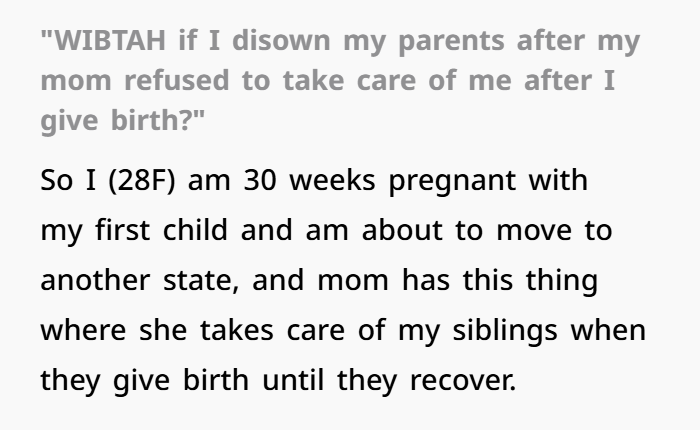
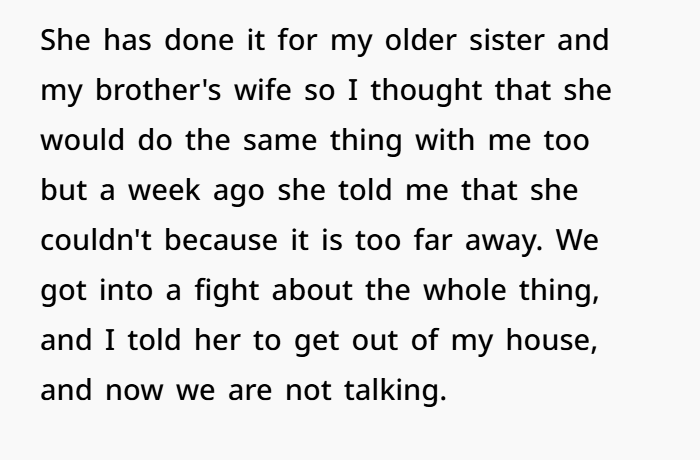
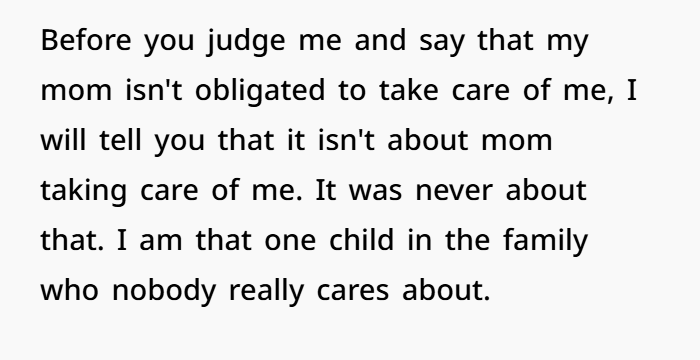

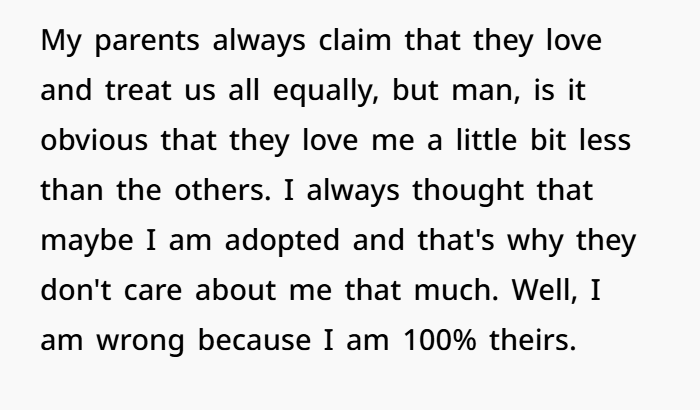
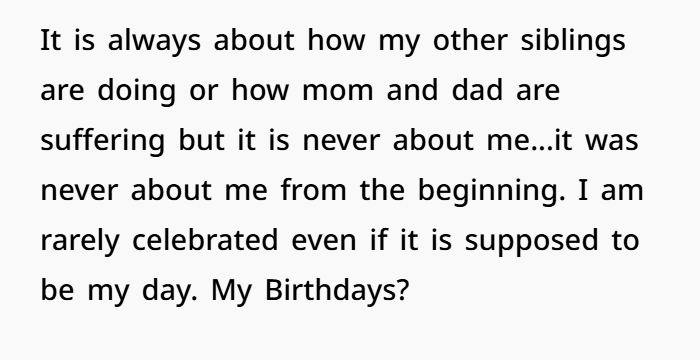
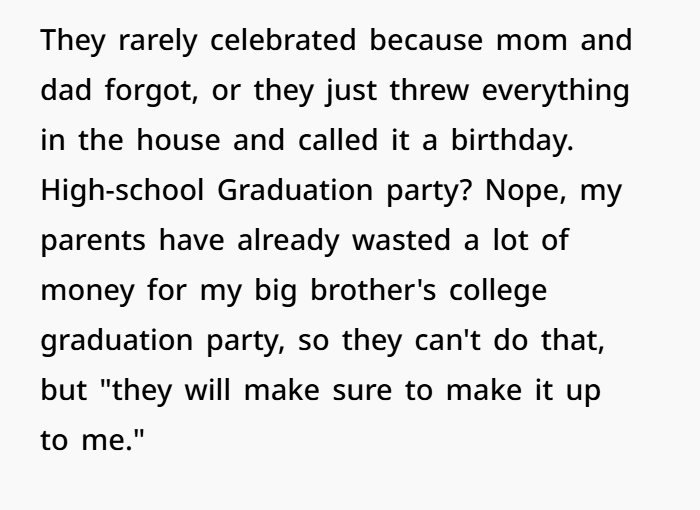
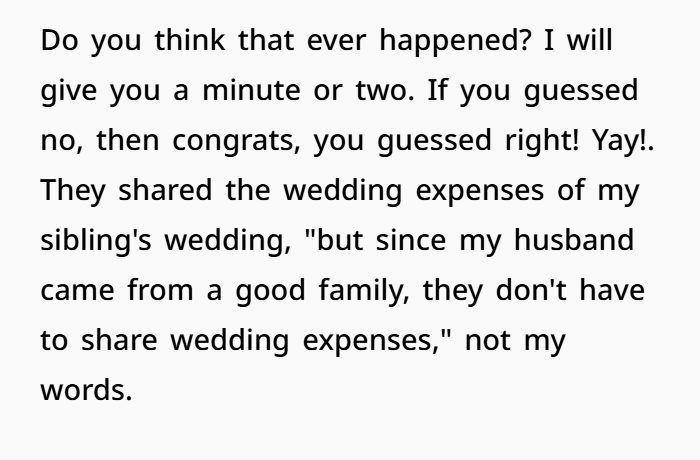
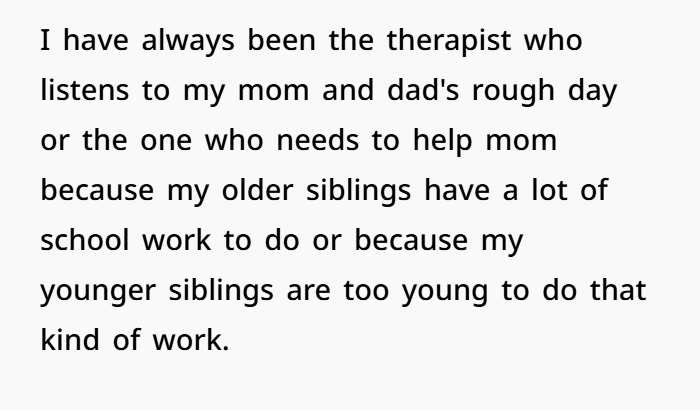
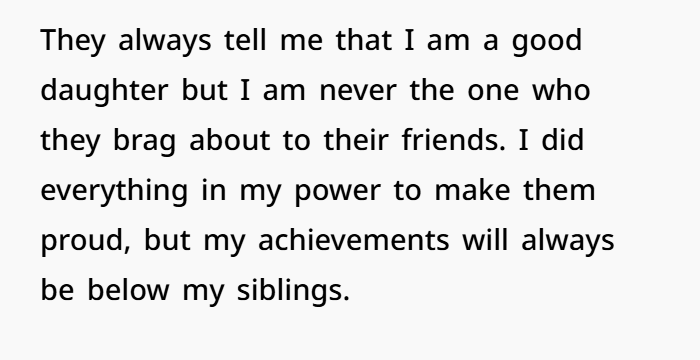
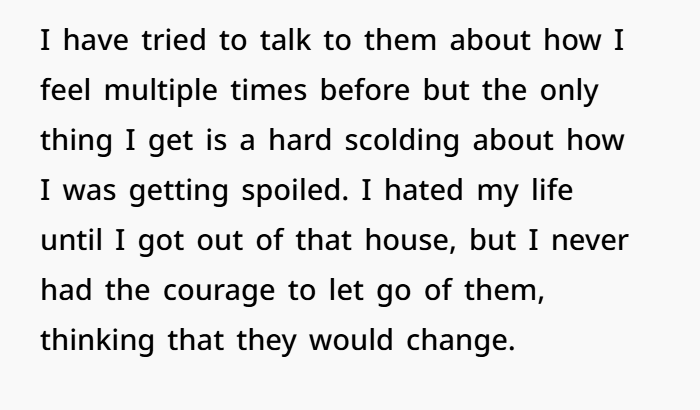
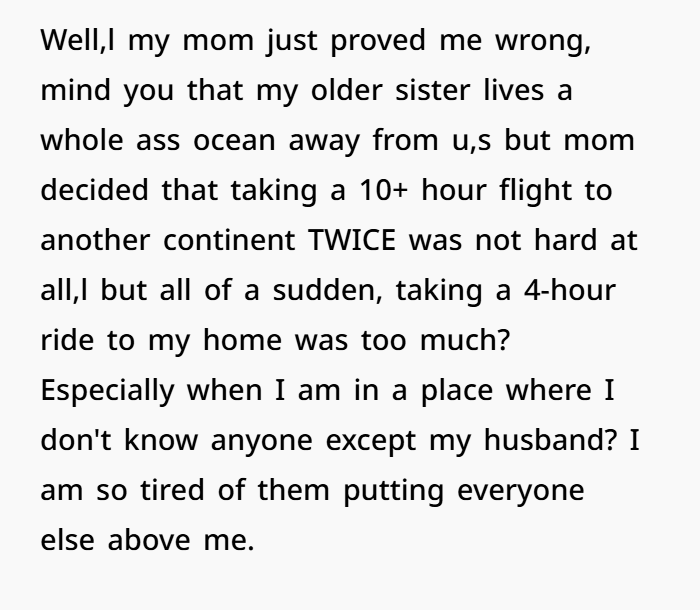
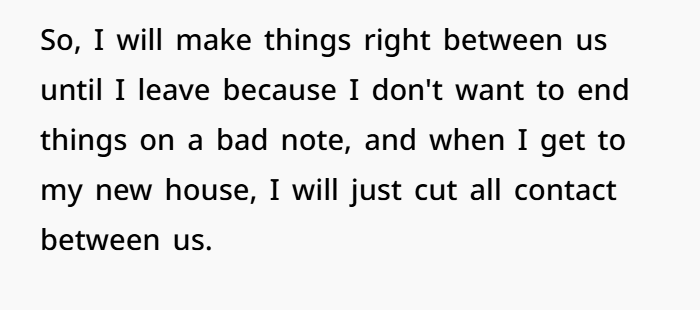
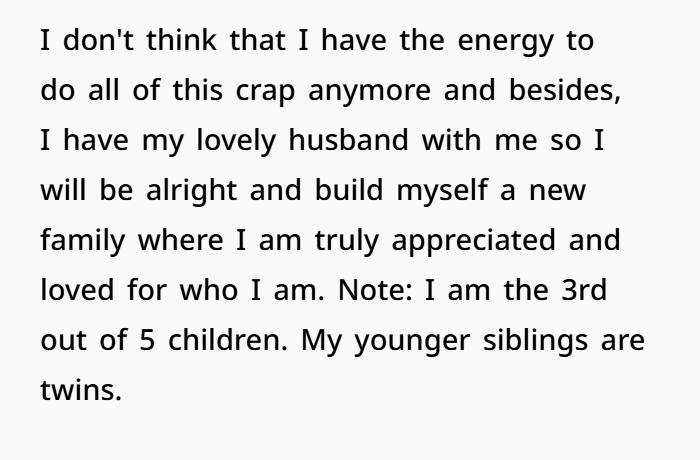
Mental Health Effects of Belief That Parents Never Did Anything For Us
Research suggests that children who feel or perceive they are the less cherished in a household could face lasting emotional fallout, including low self-worth and rejection sensitivity. Katherine Conger, a UC Davis professor who has researched sibling relationships and favoritism for years, suggests a variation of the goldfish bowl analogy. Her research underscores the lasting schisms among siblings and the harm to parent-child attachment that can stem from perceived favoritism. For you, that favoritism is systemic — from celebrations to budget — and you are left out in the cold, feeling unloved.
Which includes Boundaries and Cutting Contact
Your choice to cut the cord fits in with the increasing discussions of “strategic estrangement,” when an individual removes themselves from unhealthy family dynamics for the sake of their health. The Cornell University study on family estrangement led by Dr. Karl Pillemer has shown that the prevalence of familial estrangement is higher than we previously considered, affecting about 1 in 10 families. It is a tough call, but professionals concur that when communication does not work after several tries — or that the relationship does continual damage to one emotional well-being — ending it becomes the option of choice.
Common Expectations About Duties to Family
A number of cultures have the idea of filial piety or loyalty to parents in the background and the decision to sever connections gets even trickier under those circumstances. But modern conversations about mental health are prompting people to consider if those commitments are being returned with respect and care. When it comes to your situation, the difference in treatment given to you by your mother and your siblings destroys the thought that the bonds of family are in any way reciprocal.
Alternatives to Disowning
You might be understandably wounded — but ask yourself: Did her declining to come see you come off to her as the consummation of years of neglect? Most parents simply donot know how much their actions matter unless told so. You could try reframing the conversation as an expression of your hurt rather than an accusation, if you haven’t yet done this. Instead of “You never gave a shit about me,” try, “When you didn’t come to visit, it felt like I wasn’t as big of a priority to you as my siblings were.”
Advice and Suggestions
Closure Before Cutting Ties
Pen down all your feelings and writing a letter to your parents. This will aid you in your emotional processing and reinforce that they see and understand your view of things. You can choose whether to send it, writing it gives you clarity.
Focus on Your New Family
Redirect your energy on crafting a loving and supportive environment with your husband and child is also very fulfilling. Working on this with a therapist might also help you work through the grief of the estrangement, and in addition break this cycle of emotional neglect with your own children.
Seek a Mediator
And if reconciliation seems to be necessary, think about a neutral third person, a therapist or family counselor to help facilitate the conversation. A space for that dialogue is both good practice and can lead to insights you never would have had.
Here’s what top commenters had to say about this one:

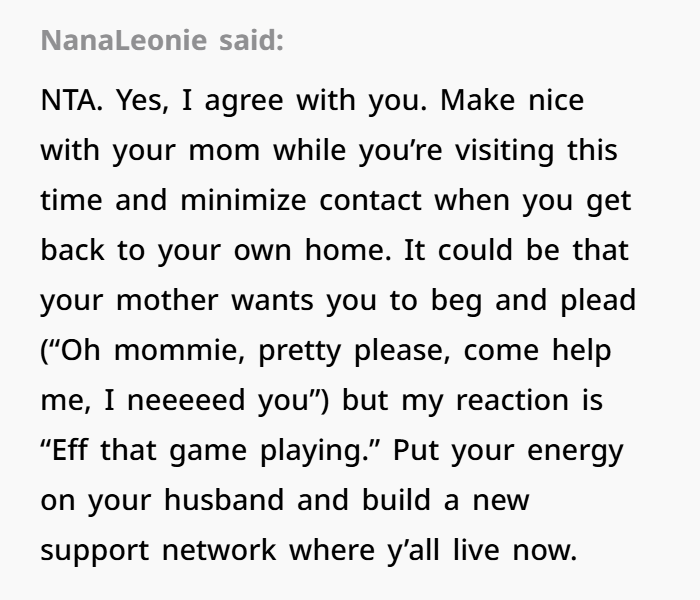
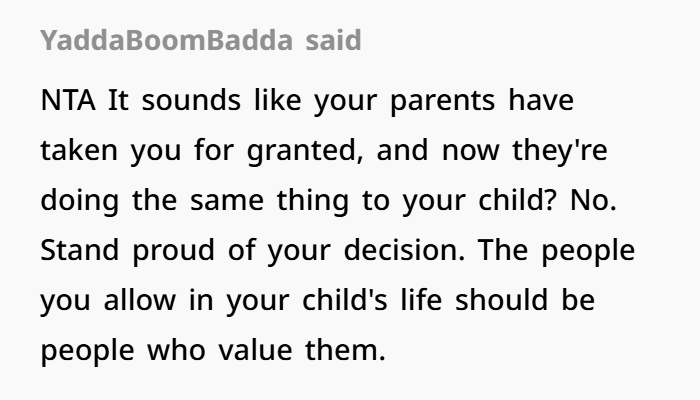
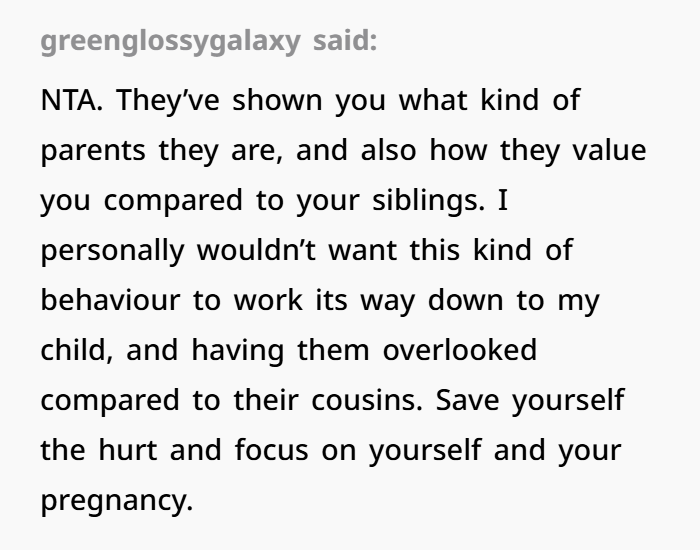
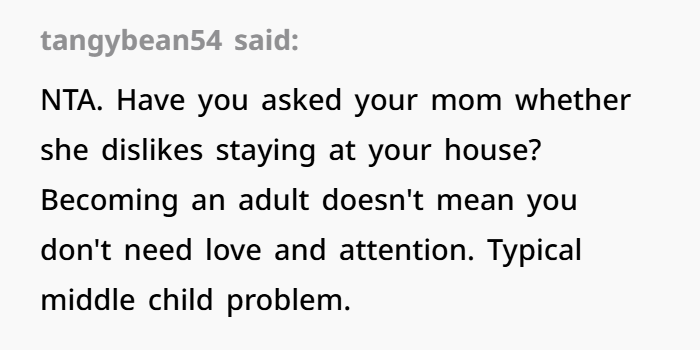

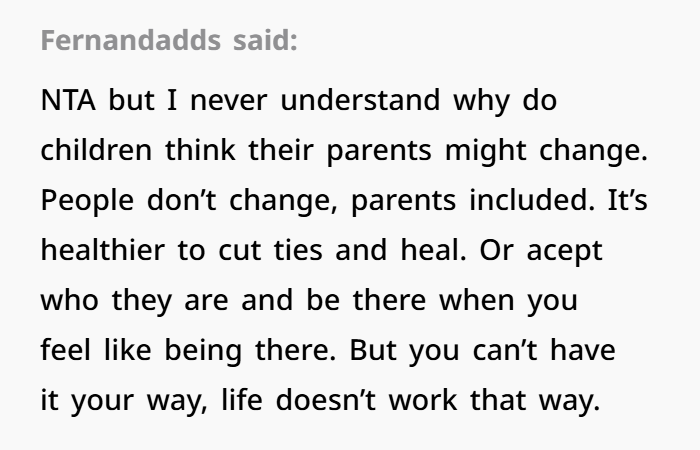
You’re not wrong for wanting to prioritize your emotional health, but disowning your parents is a significant decision. If you’ve exhausted all attempts to repair the relationship and feel this is the only path forward, trust your instincts. However, ensure you’re acting from a place of self-preservation rather than retaliation. Your well-being—and that of your new family—deserves to be your top priority.

